Updated April 3rd 2025, 08:13 IST
Canada Vows Retaliation Despite Exemption from Trump’s Liberation Day Tariffs; Global Leaders Respond to US Move
US has rolled out retaliatory tariffs across multiple countries; Canada, which has been excluded, has promised to retaliate. Here's how world leaders reacted...
- World News
- 5 min read
New Delhi: US President Donald Trump has announced the retaliatory tariffs on April 2, addressing it as ‘Liberation Day’. The tariffs have been imposed on a total of 133 countries including India, China, Japan and Bangladesh.
While Canada has been excluded from these retaliatory tariffs, Prime Minister Mark Carney has still vowed to retaliate against the United States' Liberation Day tariffs. Here's how other world leaders have reacted to this big move by the US…
Also Read: Donald Trump’s Tariff Tsunami: India Braces For $31 Billion Economic Fallout As Tariffs Impact
'Canada Will Retaliate': PM Mark Carney Despite Exclusion from Trump's Liberation Day Tariffs
Following US President Donald Trump's announcement of the retaliatory tariffs, in which Canada and Mexico have been excluded, Canada Prime Minister Mark Carney has vowed to retaliate, despite the exclusion from these Liberation Day tariffs. The Canada Prime Minister said that even though the United States has not slapped the retaliatory tariffs on the country, these global tariffs will also indirectly impact the economy of Canada and Canadians.
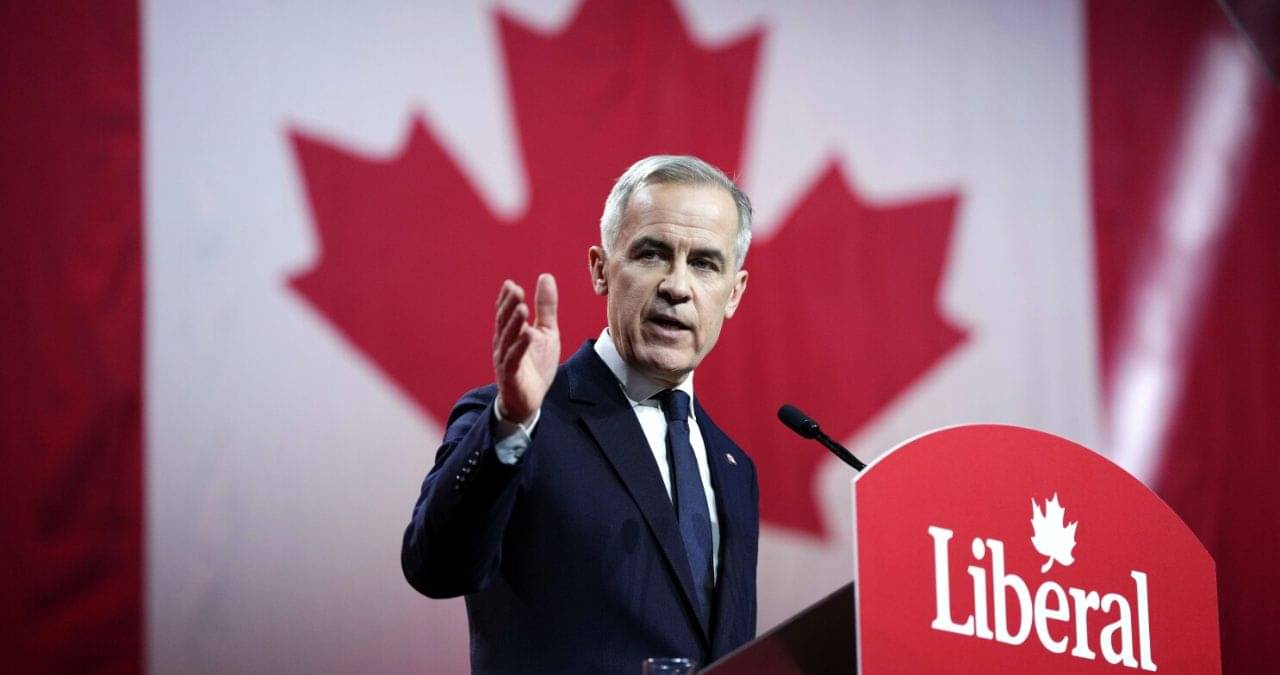
Canada Prime Minister Mark Carney
While Mark Carney said that he will also respond to the incoming auto tariffs in the following days, before chairing a Canada-US Relations Cabinet Committee meeting, the Canada PM said that these series of measures announced by President Trump will change the international trading system fundamentally and since it will have a negative impact on the US economy, it will in turn affect Canada.
Canada Prime Minister Mark Carney said that he will be meeting the premiers on Thursday to decide what the country's next steps will be, including their response to the auto tariffs, that remain unchanged after the Liberation Day tariffs announcement.
How World Leaders Reacted to Retaliatory Tariffs Imposed by US on 133 Countries
The United States has imposed retaliatory tariffs on 133 countries on April 2, including India, China, Japan, European Union, United Kingdom, Vietnam, Israel, Malaysia, Bangladesh, Pakistan, Thailand, Taiwan, South Korea, Switzerland, Indonesia, Singapore, Chile, Australia, South Africa, Brazil, Egypt, Saudi Arabia, Turkey, and Philippines among others. These tariffs will range from 10 per cent to 49 per cent.
Here's how the world leaders have reacted to this major decision by the United States…
‘Nobody Wants A Trade War But…’: UK Responds
Responding to the 10 per cent tariffs imposed on British goods, the Business Secretary of the United Kingdom, Jonathan Reynolds has expressed UK's hope to strike a trade deal so that the impact of the tariffs is mitigated. Reynolds said, “Nobody wants a trade war and our intention remains to secure a deal but nothing is off the table and the government will do everything necessary to defend the U.K.’s national interest.”
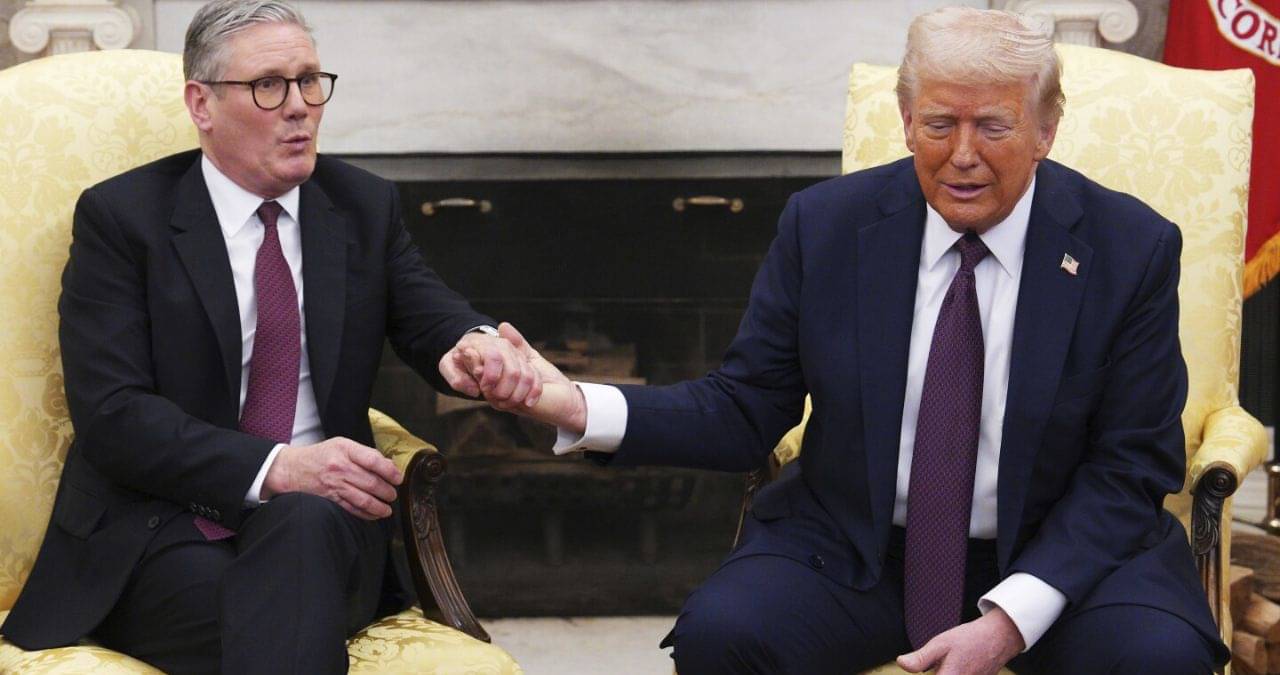
UK PM Keir Starmer with US President Donald Trump
Italy To ‘Work Towards An Agreement with US, To Avoid Trade War’
Italy Prime Minister Giorgia Meloni has also responded to the 20 per cent tariffs imposed on European Union, calling it “wrong”. Meloni has made it clear in a social media post that Italy will work towards an agreement, to avoid a trade war. The Italy PM's Facebook post read, “We will do everything we can to work towards an agreement with the United States, with the aim of avoiding a trade war that would inevitably weaken the West in favor of other global players.”
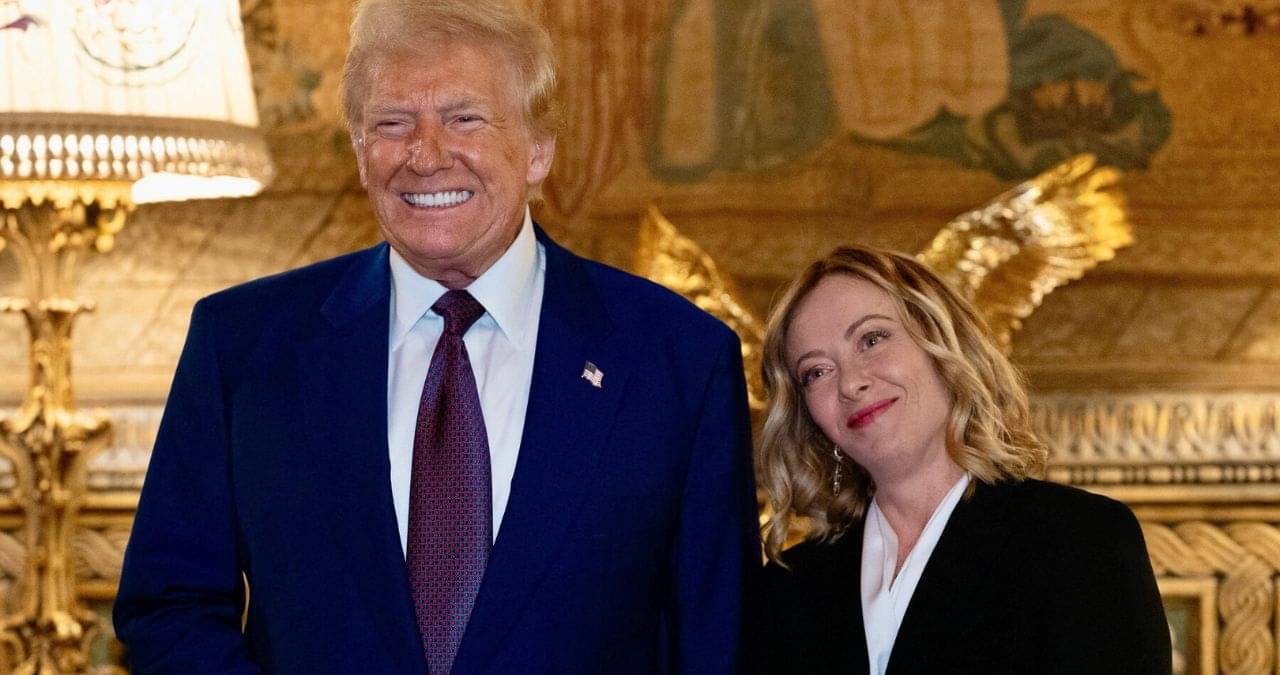
Italy PM Giorgia Meloni with US President Trump
Brazil Passes Reciprocity Bill, Considers Reaching Out to WTO
Like Canada, Brazil has also vowed retaliation to the 10 per cent Liberation Day tariffs imposed by the United States. Brazil's Congress has unanimously passed the Reciprocity Bill, allowing the govt to retaliate against any trade bloc or country who imposes tariffs on Brazilian goods. The country is also looking to approach the World Trade Organisation (WTO).
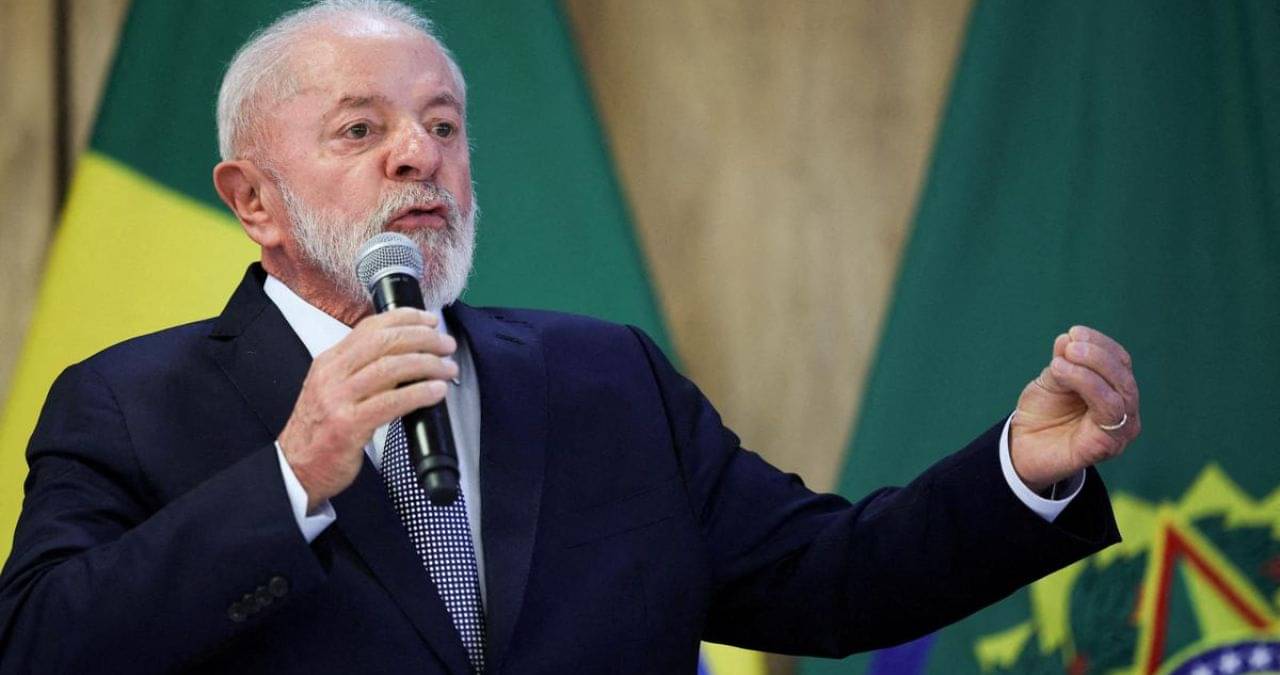
Brazil President Luiz Inacio Lula da Silva
‘Unwarranted But Will Not Retaliate’: Australia
Australian Prime Minister Anthony Albanese responded to President Trump's comments about reciprocal tariffs, stating that a reciprocal tariff should be zero, not 10%. He pointed out that the US and Australia have a free trade agreement in place, with the US enjoying a trade surplus of $2 for every $1 with Australia. He criticized the situation, saying, “This is not the behavior of a friend.” Despite calling the tariffs “unwarranted”, Albanese has said that Australia will not retaliate.
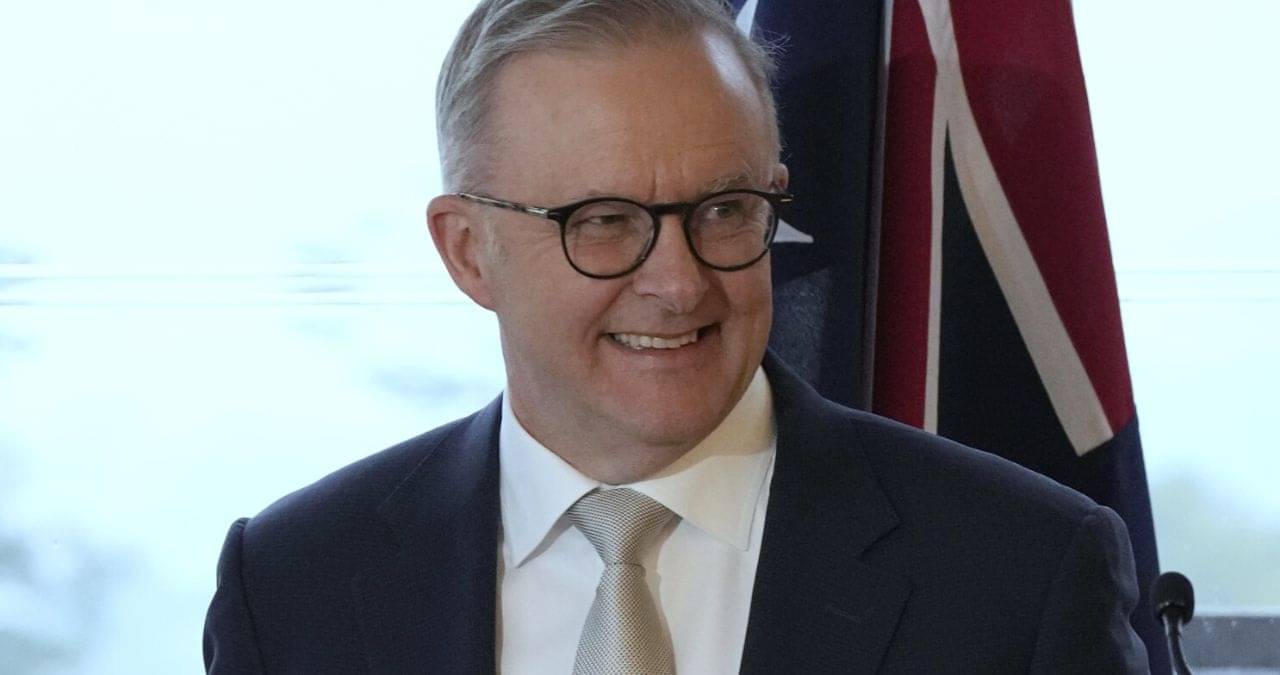
Australian Prime Minister Anthony Albanese
‘We Won’t Be Looking to Retaliate': New Zealand on US Tariffs
New Zealand also expressed concerns about Trump’s reasoning behind the tariffs. Trade Minister Todd McClay stated, “We don’t have a 20% tariff rate,” emphasizing that New Zealand maintains a “very low tariff regime,” with the actual rate being lower than the 10% baseline that the US applies to all nations .He further explained that New Zealand would not retaliate with tariffs, as doing so would increase costs for consumers and contribute to inflation.
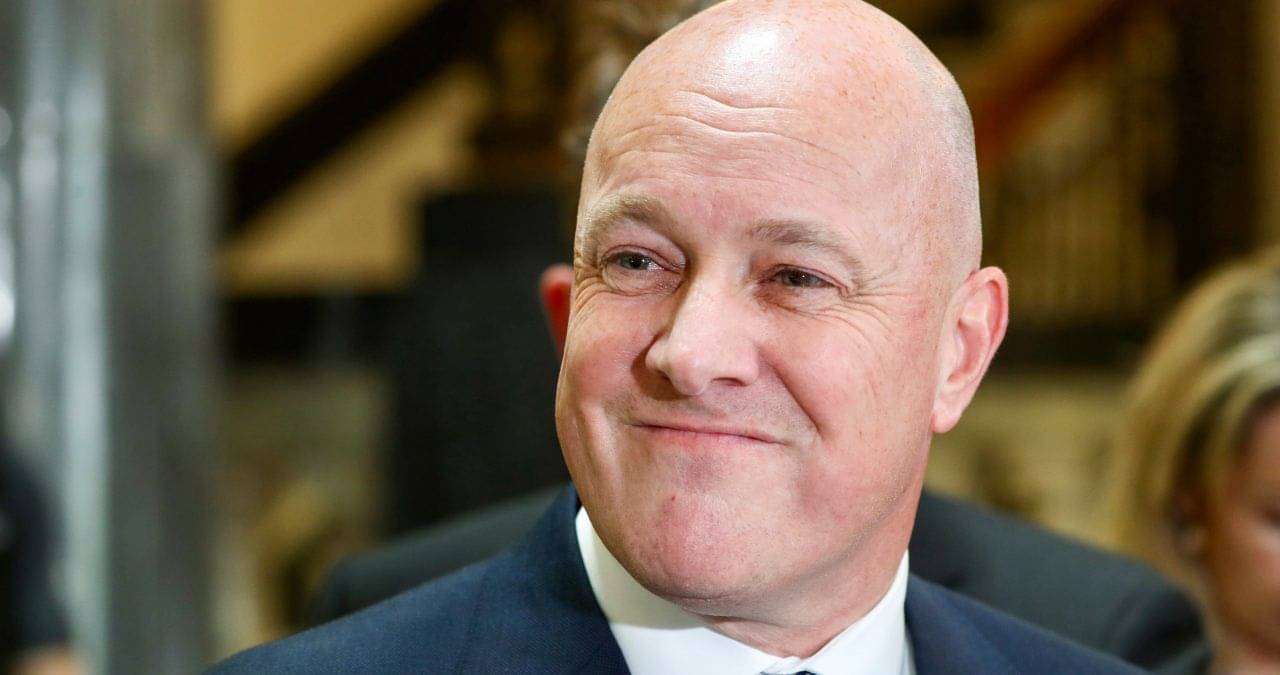
New Zealand Prime Minister Christopher Luxon
‘Our Interest Is In Strengthening Economy’: Mexico
Mexico, which has been excluded from the retaliatory tariffs, has said that they will react once it's clear how Trump's decision will impact Mexico. President Claudia Sheinbaum said, “It’s not a question of if you impose tariffs on me, I’m going to impose tariffs on you. Our interest is in strengthening the Mexican economy.”
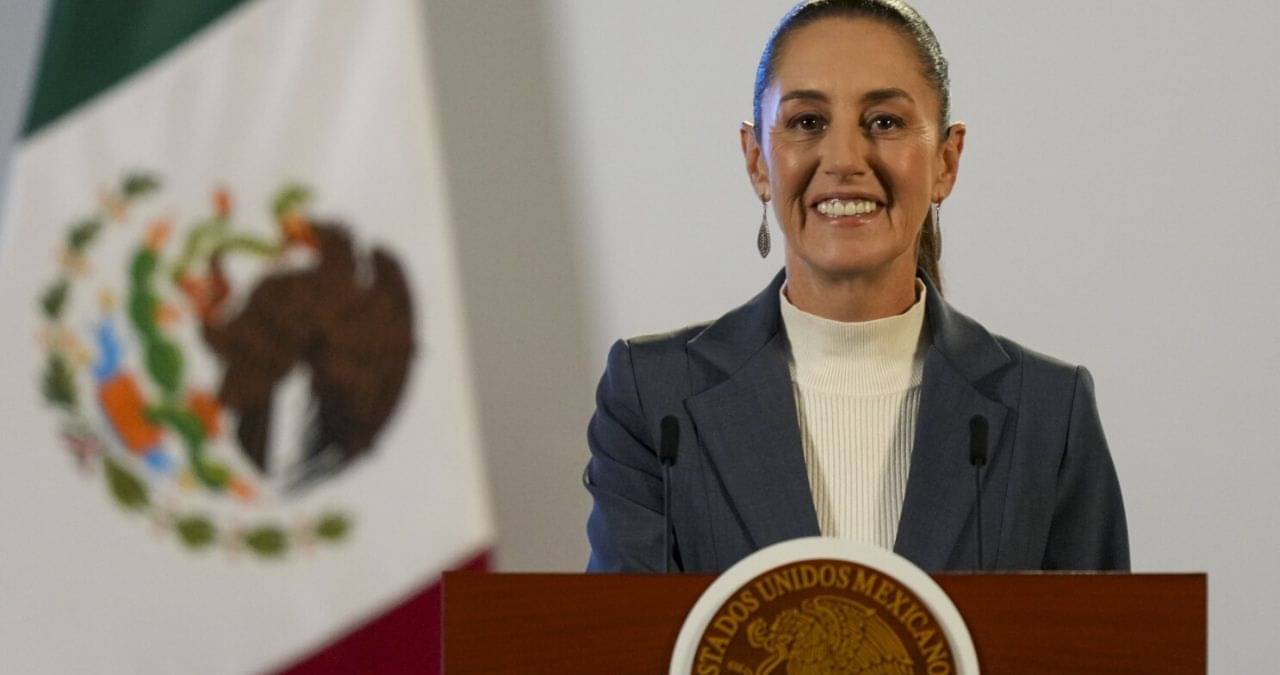
Mexico President Claudia Sheinbaum
Full List of Countries Facing Liberation Day Tariffs from US
Take a look at the complete list of 133 nations, that will be facing the retaliatory tariffs, imposed by the United States.
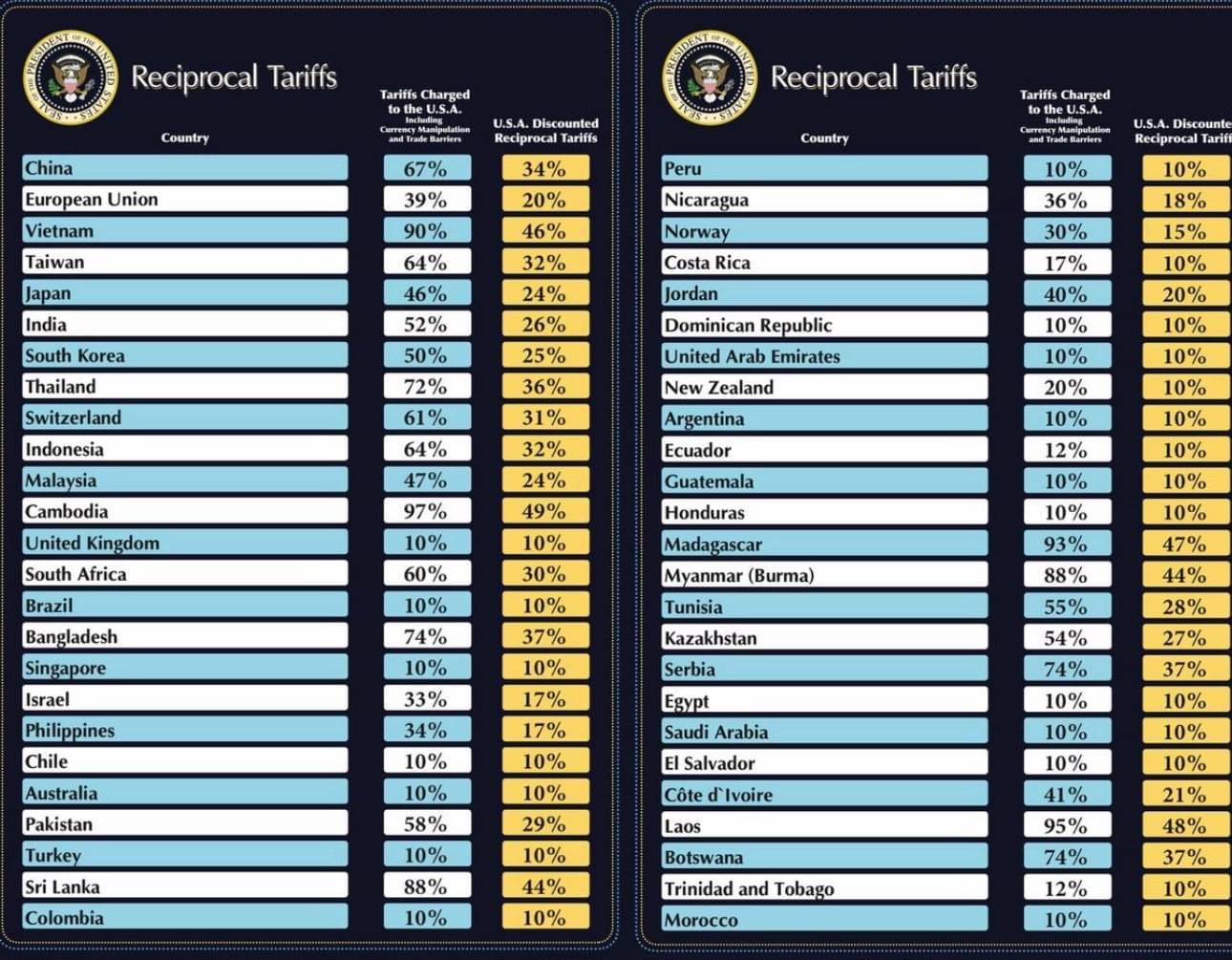
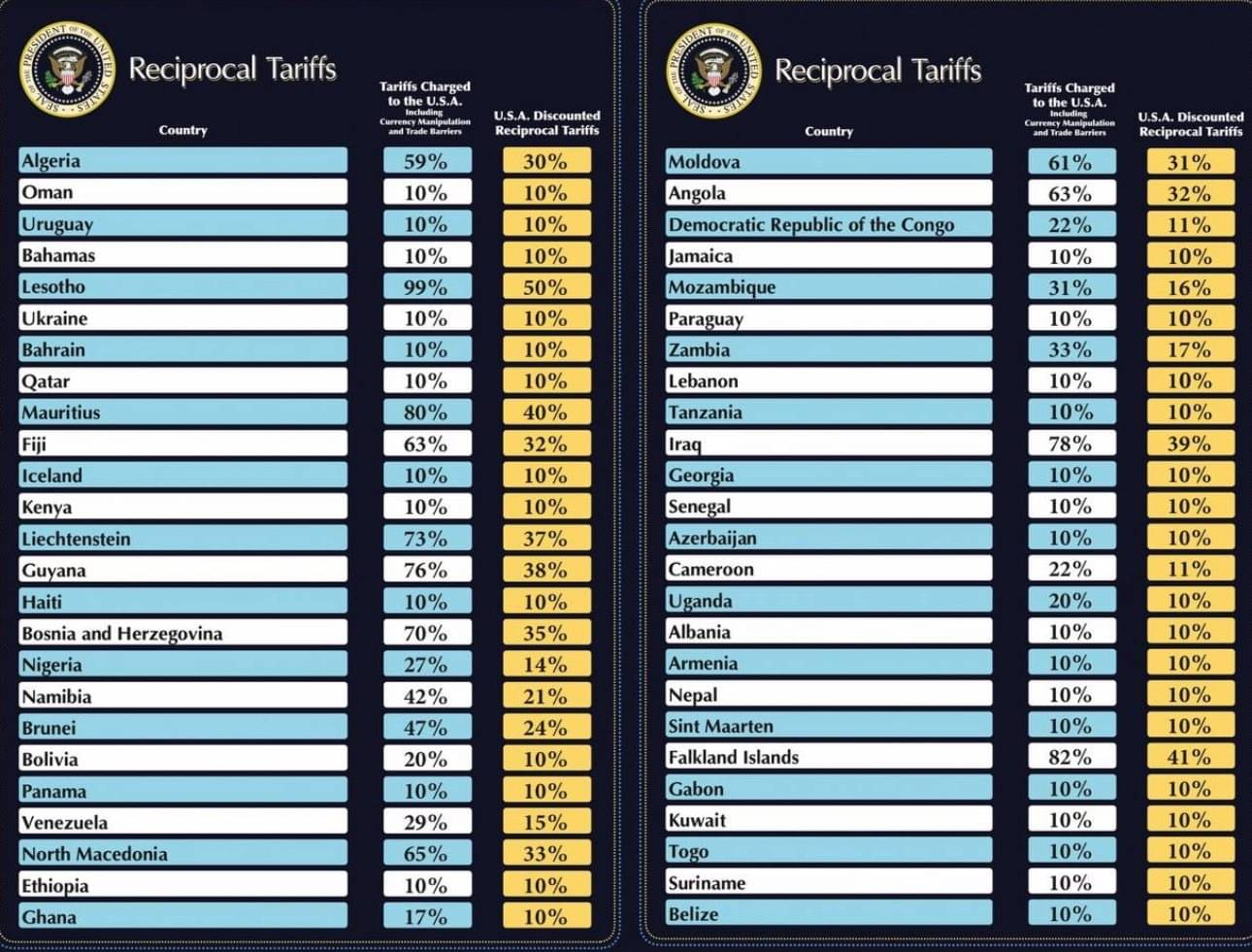
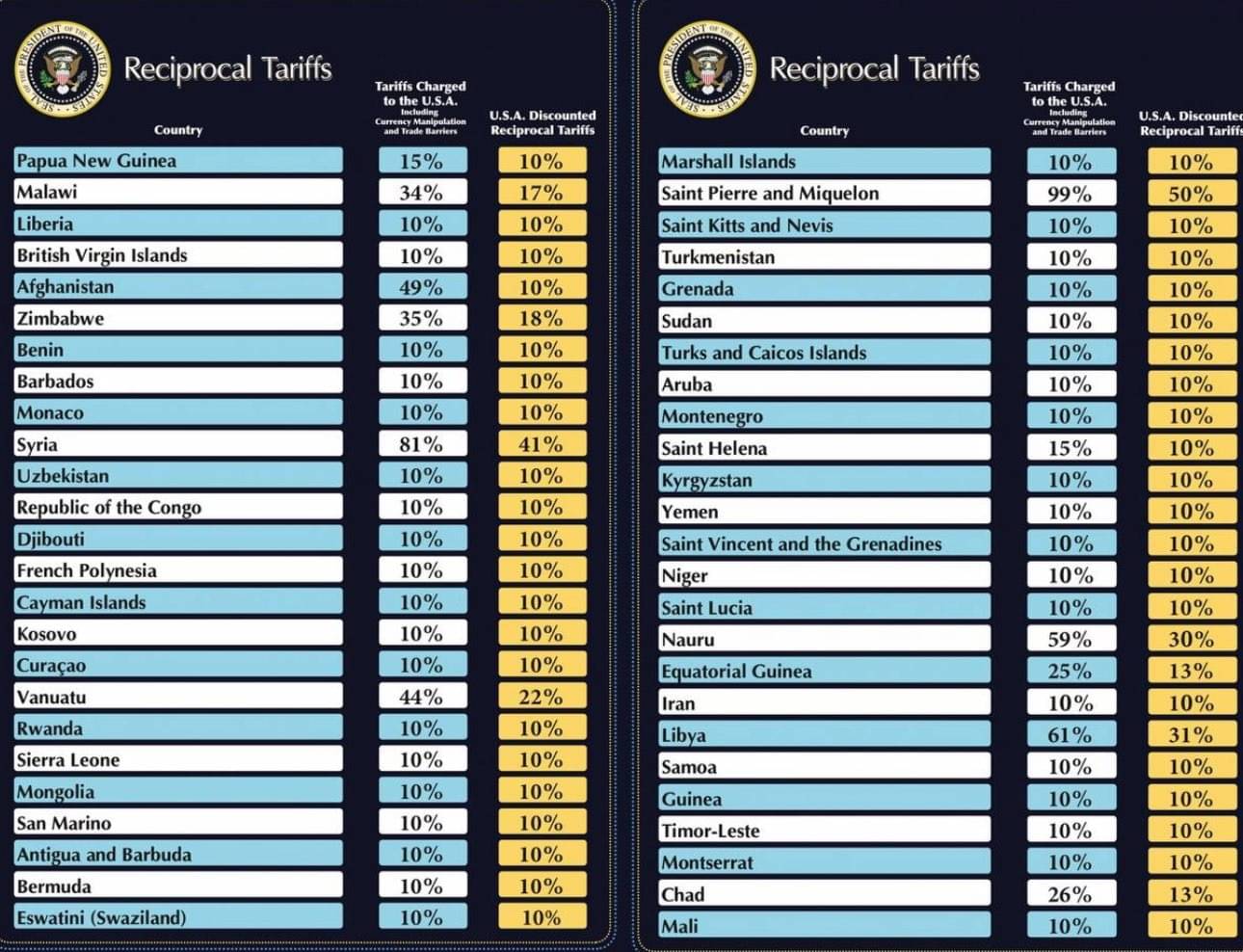
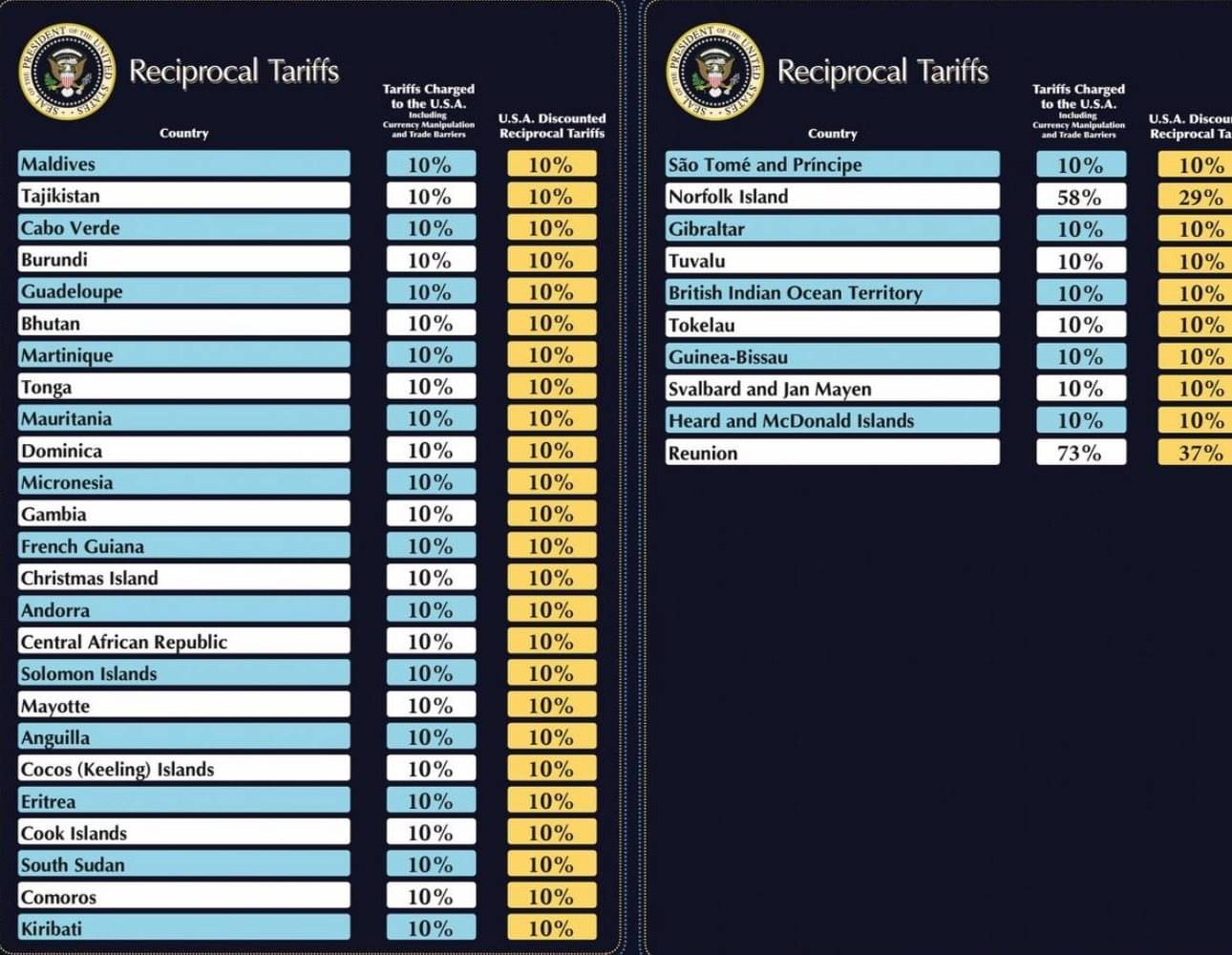
While announcing the retaliatory tariffs, US President Donald Trump said, “Taxpayers have been ripped off for more than 50 years but it is not going to happen anymore. Jobs and factories will come roaring back into our country.” The US President further said that this decision is not just based on economics, but is a question of national security threatening the country's “way of life”.
(Inputs from AP)
Published April 3rd 2025, 08:13 IST